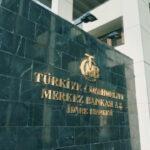The large-scale enterprises face an additional financing cost as the Turkish Banks Association’s (TBB) decision to postpone the debts of real persons and legal persons in quake-hit cities, doesn’t include them. Manufacturers, who operate in the earthquake region, stated that they face extension interest rates and high commission charges for the loans they demand to defer. One manufacturer, who employed nearly 300 people before the earthquake and whose manufacturing plant has been heavily damaged following it, told daily EKONOMI that the commission has been charged for the loan deferment at an amount corresponding to the interest rate of the loan. The banking sector sources, on the other hand, said they take steps with an assessment based on customers.
Increasing usage of checks poses an unjust treatment risk in quake-hit cities in line with the difficulty in accessing financing. Businesspeople and manufacturers, who operate in the disaster-hit provinces, expect regulation to facilitate payments of checks as they stated that financial liabilities wouldn’t be met after the economic activity has taken a major blow. The amount of check payment on presentation totaled TRY 559.72bn in 11 quake-hit cities last year. The figure corresponds to 21.3% of the country’s check payment on presentation of TRY 2.63tr.
The Central Bank used USD 7bn of reserves in the last two weeks to help steady the lira in the aftermath of devastating earthquakes, and reserves could remain under pressure in the weeks ahead, according to Reuters. The worst disaster in Turkey’s modern history killed tens of thousands and leveled areas of the south, temporarily closing the stock exchange. But in foreign exchange (FX) markets, the lira has shed only 0.2% versus the U.S. dollar since the initial quake on February 6. Central bank data show FX reserves dropped by USD 4bn to USD 125.6bn in the week after the quake. Calculations from three bankers show they dropped another USD 3bn last week. The bank declined to comment.
At least 42,310 people have been killed by two strong earthquakes that jolted southern Turkey on February 6, the Disaster and Emergency Management Presidency (AFAD) said yesterday. AFAD teams set up a total of 301,289 tents and 6,375 containers in the earthquake zone that were dispatched by ministries and relevant institutions as well as other countries and international organizations. Separately, Interior Minister Suleyman Soylu announced at a press briefing that at least six people were killed, and 562 others wounded with 18 in critical condition after a fresh earthquake jolted Turkey’s southernmost province of Hatay late Monday.
Meanwhile…
>>Germany, which is home to the largest Turkish diaspora in the world, has shipped more than 340 tons of aid, including tents, blankets, and generators to help the survivors of a quake that killed over 47,000 people in Turkey and Syria. It is also offering quick 90-day visas to the European Union’s Schengen area for victims who want to visit family members in Germany. Berlin has organized buses to reach quake-hit areas staffed with people to help process applications, including from people whose passports were lost in the rubble.
>> Russian Prime Minister Mikhail Mishustin signed yesterday a decree approving a facilitated visa regime for citizens of 19 countries, including Turkey. Citizens of the specified countries may get a tourist visa for up to six months if they have a hotel reservation, the decree, published on the government portal, read.
>> Flag carrier Turkish Airlines evacuated nearly 300,000 people from Turkey’s earthquake-hit southern region so far. “We evacuated a total of 296,819 citizens by 1,646 flights,” Yahya Ustun, Turkish Airlines’ senior vice president for media relations, said on Twitter. The airline operated 1,667 flights to bring the search-rescue and aid teams to the earthquake zone.
>> Ford, LG Energy Solution, and Koc Holding have signed a non-binding agreement to form a joint venture to create one of Europe’s biggest electric vehicle battery cell facilities in Turkey, according to a statement from Koc Holding.
>> The regulation regarding the victims of delayed pension age (EYT) is expected to be enacted next week at the Parliament, which has suspended its work until February 28.
>> Switzerland’s gold imports to Turkey totaled 58.3 tons, or USD 3.6bn in January, hitting an all-time January figure, according to Borsa Istanbul. Turkey’s overall gold imports amounted to 68.3 tons in January.
>> The Treasury and Finance Ministry borrowed TRY 3.1bn in an auction yesterday.
READ A SELECTED ARTICLE FROM OUR MAGAZINE:
>> 51% of apartments were constructed in 2001 and after
Our Eco Analysis Columnist Alaattin Aktas examines the number of building stocks in quake-hir provinces.










